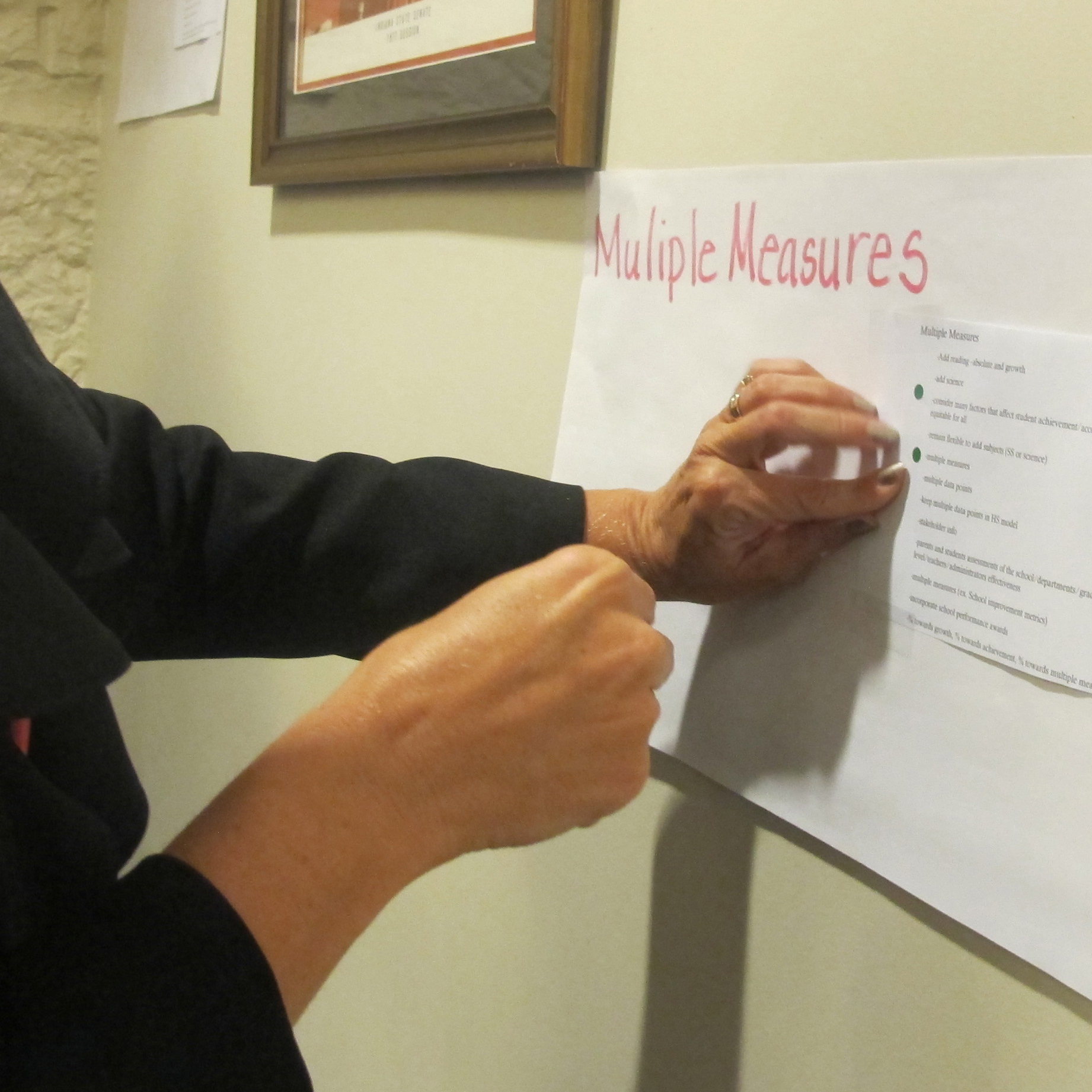What Could Be In Indiana’s Proposed Student Data ‘Backpack’

Kyle Stokes / StateImpact Indiana
Students at Evansville's Harrison High School use computers in the chemistry class.
With students and teachers swimming in academic data these days, a top state lawmaker wants to create a website where parents can access all of that data at once.
Indiana House Education Committee Chair Bob Behning, R-Indianapolis, will push a bill in the upcoming session to create a “data backpack,” based on a new Utah law the American Legislative Exchange Council recently highlighted as model legislation.
In Utah, the legislation ordered the creation of a secure website that will eventually allow parents to see data points from students’ grades and attendance to their statewide test scores.
With Indiana preparing to revamp or replace its current test, the ISTEP+, Behning says the time is right to begin work on a similar website here.
“Why not get the particulars that would get more information to parents at the time you’re creating [a new statewide test]?” he told Indiana Public Broadcasting‘s Brandon Smith.We won’t know exactly what would be in Indiana’s bill until early next month, but here are a few of the data points that Utah will put in its “data backpack”:
- Student demographic information
- Course grades
- Course history
- Statewide test scores
- Section attendance
- Teachers’ names and qualifications, “including years of experience, degree, license and endorsement”
- Results of “formative and summative” assessments, meaning the low-stakes standardized tests teachers give to students to track their progress.
- Student writing sample
In Utah, some of the data points will be available to teachers and “authorized [district] users” next year. Others won’t be available until 2015. Utah’s “data backpack” won’t be available to parents until 2017.
The ALEC model legislation is virtually identical — EdWeek has a copy. (Behning told Smith he first encountered Utah’s law during a breakout session at a National Council of State Legislatures meeting.)
The Utah law has drummed up criticism from groups formed to oppose the Common Core, who fear government data mining in the classroom.
“Parents were never asked whether they wanted their children to be tracked (stalked) by the government. Nor does it mention the fact that parents have no recourse to opt out of this state surveillance program,” writes Utah Common Core opponent Christel Swasey on her blog.


